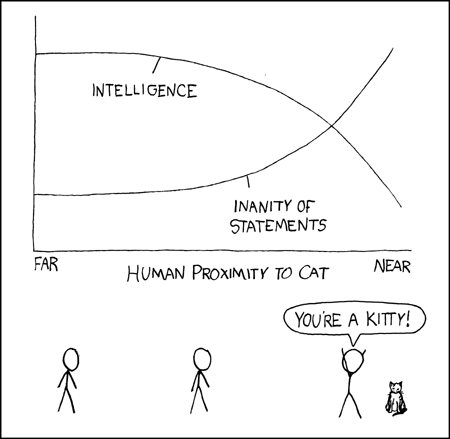Of MOBAs and materialism
DOTA, along with its companion in crime League of Legends, is tremendously popular. Its gameplay is immediately familiar to anyone that has ever played an RTS, since they evolved from earlier examples such as Starcraft or Warcraft 3.
The problem with these MOBAs, compared even to their RTS forebears, is their communities are toxic. Extremely toxic. In some cases, nightmarish to the point where even a single 45-minute game becomes a highly stressful ordeal. Part of this reason is the availability of global chat within a game, which creates an incentive for players to be as evil to the opposing team in chat as possible. But let's not get too far off-topic here.
For this reputation alone, I initially steered very clear of these games. Not because they were challenging or failed to be interesting to watch, but because I would rather do without the tension of dealing with assholes in every consecutive match.
However, out of curiosity and the likelihood of a better experience, I was drawn in when my roommates started playing DOTA2. I was even rather decent at the game (by the standards of newer players), even though I never quite got some of the rhythms down for last hitting.
But, I noticed that for nearly every match I played, and regardless of whether we won, the game was emotionally exhausting.
Initially, I attributed this to not being especially good at the game. After all, many friends in social circles that played the game were quick to remind me that "it gets better". So I got curious and started watching pro games and popular Twitch streamers, observing how they played and what they said to one another. And while I found some improvements in quality (they were more respectful to the pause feature of the game, for example), matches were routinely filled with trash talk by all participants.
Now, this may be an experience some people enjoy: being emotionally bombarded in a zero-sum environment in which success relies on precise play by multiple allied parties. But while trying to emulate the behavior of better players, I found myself being repeatedly yelled at, including by people close to me. And even (and especially) in games in which I won, I found the process to be emotional junk food: leaving me craving more, yet consistently failing to satisfy the hunger of a better experience.
I find this qualia -- emotional junk food -- to be a very good parable to another problem I've been dealing with lately: materialism. While not materialistic myself -- I get along just fine on very little, as repeated uses of my small bug-out bag have proven -- I am finding it increasingly difficult to deal with people whose materialism is a considerable part of their personality.
This is because materialism always leaves you craving more. There is no solace or peace in one's intrinsic value or skills if it cannot be productized, and anything that falls out of that rubric is immediately called into question. By the valuation of observable wealth, this is seen as rational. Yet the materialists I have come to know, both at a distance via social media and in rare cases personally, have proven to be some of the most anxiety-ridden individuals I have ever known when not discussing a new toy.
My purpose in this discussion, then, isn't a scathing rant against DOTA or materialism. Rather, it's to point out the subtle danger of conditioning in situations that have a very small upside.
My reasons for not enjoying DOTA are the same reasons I am not a materialistic dragon: both habits have a woefully small return on my personal investment. Buying new toys and then forgetting about them is not dissimilar to the short dopamine-infused high of finally having a pleasant match of DOTA. And both experiences are geared towards holding a reward just barely out of reach, goading you to continue onward in an increasingly desperate frenzy for relief.
But the desperate habitual behavior to obtain these highs just isn't worth the cost of being made sad, angry, or emotionally listless on a regular basis. This is especially true when I can obtain happiness and a sense of accomplishment elsewhere: by the joy of creating, by the eustress of sharing my work on a nightly basis, and from the intrigue of learning new skills on a regular basis instead of seeking cheap thrills. And unlike a situation that promises value and never delivers, these deliver constantly, and make me feel good about having them in my life.
Much of our adult society seems geared towards producing cheap thrills as a means of building dependency. This is something that I have done very well to avoid over the years, and despite some missteps in recent years, I will be returning to a better pattern once I obtain my new home.
I suppose this all means that I try to make conditioning work best for me. And as I re-evaluate several decisions I have made over the past years and very pointedly separate myself from the emotionally manipulative people in my life (in multiple contexts, please don't stir drama by trying to guess who), I'm taking this opportunity to build better habits and reduce my dependency on this emotional junk food.
Edit: Due to an editing mishap, I'd lumped Heroes of the Storm in with games that support global chat and have toxic communities. From what I can tell, this is not the case with HotS, precisely because allchat is disabled and other substantive design improvements on the genre. As such, I've taken it out of the article's consideration of MOBAs with these characteristics.
